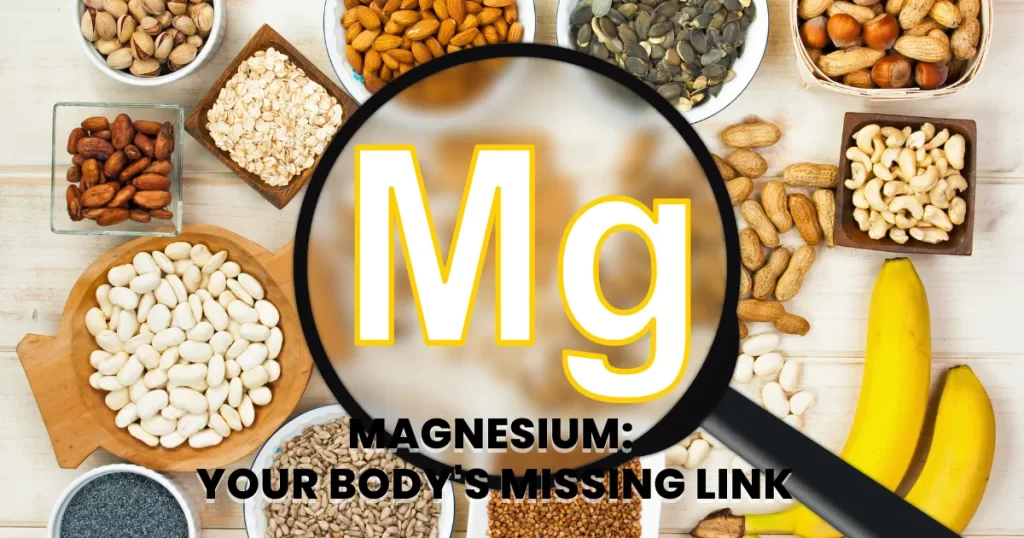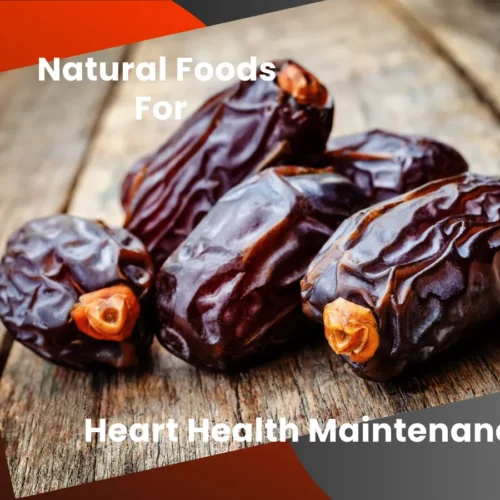Magnesium is an essential mineral vital in numerous bodily functions, including bone health, muscle function, and overall energy production. Despite its importance, magnesium deficiency is a common issue that affects millions worldwide and often goes undiagnosed. In this article, we’ll explore magnesium deficiency, foods that are high and low in magnesium, and why this mineral is crucial for healthy bones and muscles.
What Is Magnesium Deficiency?
Magnesium deficiency, or hypomagnesemia, occurs when the body lacks sufficient magnesium to support optimal functioning. Since magnesium is involved in over 300 enzymatic reactions, a deficiency can have widespread effects on the body.
Symptoms of Magnesium Deficiency:
- Muscle Cramps and Spasms: Magnesium helps muscles relax. A deficiency often leads to muscle tightness, cramps, and spasms, particularly in the legs.
- Fatigue: Low magnesium levels can reduce energy production, leading to chronic fatigue.
- Weakness: Magnesium is essential for muscle contraction and strength; a deficiency can make one feel weaker than usual.
- Bone Weakness: Magnesium is crucial for calcium absorption and bone density. A lack of magnesium can lead to weakened bones and an increased risk of osteoporosis.
- Heart Issues: Magnesium deficiency can cause irregular heartbeats (arrhythmias) and higher blood pressure.
- Mental Health Concerns: Symptoms like anxiety, depression, and irritability may be linked to low magnesium levels.
- Tingling and Numbness: Neurological symptoms like tingling sensations and numbness can occur when magnesium levels are critically low.
- The connection between magnesium deficiency and constipation
Causes of Magnesium Deficiency:
Magnesium deficiency can result from several factors, including:
- Poor Diet: Diets low in magnesium-rich foods like leafy greens and whole grains can cause weaknesses.
- Chronic Illnesses: Conditions such as Crohn’s, diabetes, and kidney disease may impair magnesium absorption.
- Medications: Certain medications, such as diuretics, antacids, and antibiotics, can reduce magnesium levels in the body.
- Alcohol Abuse: Excessive alcohol consumption can lead to poor magnesium absorption and depletion.
- Excessive Stress: Chronic stress increases magnesium excretion from the body.
Magnesium and Bone Health
Magnesium plays a critical role in maintaining strong and healthy bones. About 60% of the body’s magnesium is stored in the bones, and it works alongside calcium and vitamin D to ensure proper bone structure and density.
- Supports Calcium Absorption: Magnesium aids in properly metabolizing calcium, ensuring that calcium is deposited in the bones and not in the arteries.
- Prevents Osteoporosis: Low magnesium levels are associated with reduced bone density and an increased risk of fractures, especially in older adults.
How Magnesium Affects Digestive Health.
There is a clear connection between magnesium deficiency and constipation. Magnesium is vital in maintaining healthy muscle function, including the muscles in your digestive tract. When your body lacks adequate magnesium, it can lead to sluggish bowel movements, making it more difficult to pass stool and constipation.
Why is it important? Magnesium helps draw water into the intestines, softens stool, and supports smoother, more regular bowel movements. Without enough magnesium, stools may become dry and hard, increasing the likelihood of discomfort and infrequent elimination.
Magnesium-based laxatives, such as magnesium citrate or hydroxide, are commonly used to relieve occasional constipation. These supplements increase fluid in the intestines and stimulate the bowel muscles.
However, it’s important to note that chronic use of such laxatives without medical supervision can lead to dependency or imbalance. If you suspect a magnesium deficiency, it’s best to consult a healthcare provider and consider magnesium-rich foods like leafy greens, nuts, seeds, legumes, and whole grains.
Magnesium and Muscle Health
Magnesium is an indispensable mineral for optimal muscle function. It’s a powerhouse, playing a critical role in muscle contraction and relaxation, ensuring your muscles work smoothly and efficiently.
- Prevents Muscle Cramps: Adequate magnesium levels help regulate nerve signals, stopping muscles from becoming overexcited and significantly reducing the likelihood of painful cramps and spasms.
- Boosts Athletic Performance: This mineral is vital for energy production during workouts and muscle recovery post-exercise, making it a key player in enhancing overall athletic capabilities.
- Alleviates Muscle Pain: Magnesium can often provide significant relief from muscle soreness and discomfort, particularly after strenuous physical activity, aiding in quicker recuperation.
Signs You May Need More Magnesium
How do you know if you’re not getting enough magnesium? Look out for these warning signs:
- Frequent muscle cramps or spasms
- Unexplained fatigue
- Bone pain or weakness
- Sleep disturbances or insomnia
- Persistent headaches or migraines
- High blood pressure
- Digestive issues like constipation
How to Prevent and Treat Magnesium Deficiency
- Eat a Balanced Diet
- Prioritize magnesium-rich foods in your meals. A well-rounded diet that includes whole grains, nuts, seeds, and vegetables will help maintain healthy magnesium levels.
- Consider Supplements
- Magnesium supplements may be helpful if you can’t meet your magnesium needs through diet alone. Common forms include magnesium citrate, magnesium glycinate, and magnesium oxide. Always consult a healthcare professional before starting supplements.
- Manage Stress
- Since stress depletes magnesium levels, incorporating stress-reducing practices like yoga, meditation, and deep breathing exercises can help maintain balance.
- Limit Alcohol and Processed Foods
- Cut back on alcohol and heavily processed foods, as they interfere with magnesium absorption and contribute to deficiency.
- Hydrate Properly
- Proper hydration ensures that magnesium is absorbed efficiently. Drinking water with trace amounts of magnesium can also help.
Magnesium-Rich and Low-Magnesium Foods
Foods High in Magnesium
| Category | Examples & Magnesium Content |
|---|---|
| Leafy Green Vegetables |
|
| Nuts and Seeds |
|
| Whole Grains |
|
| Legumes |
|
| Fruits |
|
| Fish |
|
| Dairy |
|
| Dark Chocolate |
|
| Other Sources |
|
Foods Low in Magnesium
| Category | Description |
|---|---|
| Refined Grains | White rice, white bread, and pasta lose their magnesium content during processing. |
| Sugary Foods | Sodas, candy, and baked goods made with refined sugar lack magnesium and provide minimal nutritional value. |
| Processed Snacks | Chips, crackers, and similar snacks are generally low in magnesium and high in sodium and unhealthy fats. |
| Alcohol | Though not a food, alcohol depletes magnesium levels in the body and can impair absorption over time. |
Conclusion
Magnesium is an unsung hero when it comes to maintaining optimal health. This mineral is critical for various bodily processes, from supporting bone density to ensuring proper muscle function. Unfortunately, magnesium deficiency is common, but the good news is that it’s preventable and treatable with a magnesium-rich diet and, if needed, supplements.
By focusing on magnesium-rich foods like leafy greens, nuts, seeds, and whole grains, you can avoid the adverse effects of deficiency and promote better health. Whether you want to strengthen your bones, reduce muscle cramps, or improve overall well-being, magnesium deserves a top spot in your nutrition plan. Take charge of your health today by prioritizing this essential mineral.







August 19, 2025 at 2:11 pm[…] cooked beetroot provides a source of nutrients such as vitamin C, potassium, iron, and magnesium. In addition, eating raw beetroot improves bowel movements, relieves constipation, reduces […]